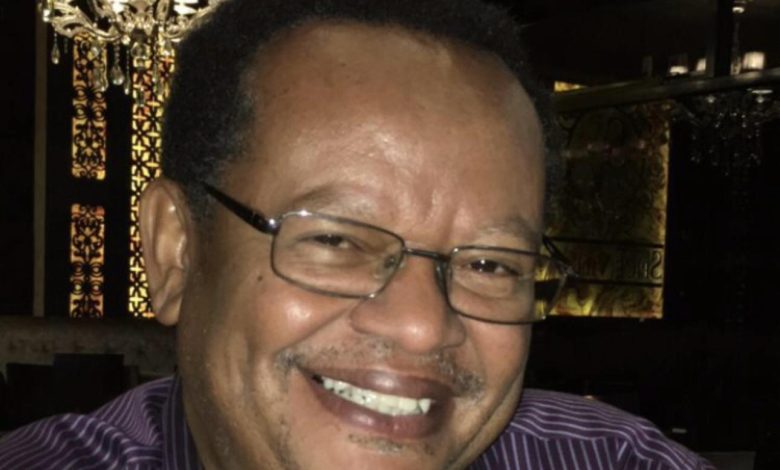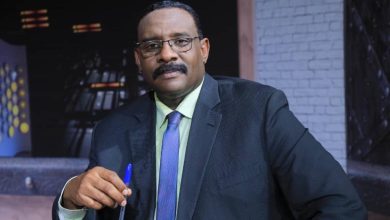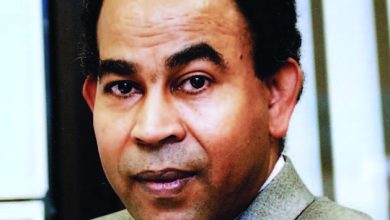The Day FFC Bites its Fingers in Remorse

Voices and Writings
Babekir Ismail
02/02/2024
The Forces of Freedom and Change Alliance, widely known as FFC, was established on 1/2/2019 by political bodies and parties consisting of the Professionals Association (consisting of newly formed unregistered factional formations claiming union representation for broad sectors of the professions), and the Sudan Call Forces Alliance (The most prominent of which are the Umma Party, the Sudanese Congress, the Aqar, Minawi, and Jibril movements), the National Consensus Forces Alliance (the most prominent of which is the Communist Party, Baath Al-Sanhuri, and small federal parties), and the civil society forces, which are gelatinous organizations such as Girifna, the Sudanese Tweeters, Gedaref Madinati, and the secretariat of the Azrag Taiba Initiative (The initiator died more than two years ago)
These political parties, armed movements, community and trade union organizations issued the Forces of Freedom and Change (FFC) with a broad claim that says in its opening: “We are the people of Sudan in the cities and villages in the north, south, east, west and centre, with all our popular, political, social, trade union and civil forces and those with demands.”
Noting that this alliance disbanded after the first period of effervescence and continued to dissolve and disappear little by little, and only the National Umma Party (the wing of the sons and daughters of Imam Al-Sadiq and their in-laws) remains of it, the Sudanese Congress Party, small federal factions, and a splinter faction from a small party founded by a man who claimed divinity in the 1940s. In the past, his daughter and her husband inherited the presidency of the party.
Most of the leaders presented by the FFC coalition at the level of the Council of Ministers and the Transitional Sovereign Council fit the description of political activists. They are weak and shaky leaders who have never worked in disciplined or executive politics at any stage of their lives, let alone that some of them have never worked in any position for a government. Sudan or any of the 193 countries registered as members of the United Nations.
Examples of these leaders include a woman who, for thirty years, ran a shop for photocopying documents, covering cards, and printing research. She was appointed by FFC as Minister of Foreign Affairs. It also appointed a pizza delivery worker in London as Minister of Justice, who is responsible for revising the applicable law regarding any “permissible” materials in its laws.
Another was working as a security guard in the Arqus home appliances store. He became a member of the Sovereign Council and a colleague of his who worked in the Public Services Center of one of the telecommunications companies immigrated to Doha to settle in one of its bakeries as a shelter for him, FFC made him Vice President of the Sovereign Council, etc..
The FFC government failed miserably in economic performance. The value of the dollar in the parallel market doubled within fifteen months to 10 times its value when the previous regime fell. The price of a liter of fuel doubled a hundredfold and the price of bread fiftyfold, in addition to the deterioration of the services sector, including education and health. Normal life in Sudan was disrupted, schools, hospitals, roads and government offices were closed.
FFC paid great attention to politically criminalizing its rivals, setting up courts for them and broadcasting their sessions on government television.
FFC expelled everyone from their government jobs who it suspected belonged to or sympathized with the previous regime, dismissing 12,000 civil service employees, excluding thousands more from the army, police, and security forces, and hundreds of judges, ambassadors, and government advisors. Thus, it stripped the government apparatus of competent elements, emptied it of its accumulated experience, and dissolved it. The Operations Authority of the National Intelligence Service, which is combat units specialized in combating terrorism, urban warfare, and combating smuggling, drugs, and illegal immigration, thus exposed the back of the country and deprived it of quality forces with high and specialized combat capabilities.
The dismissal lists included thousands of highly qualified officers in the armed forces, police, security, and hundreds of members of the judiciary
The Empowerment Dismantling Committee confiscated the funds, companies, and homes of their political rivals through administrative decisions without judicial support, and its decisions were considered effective and could only be appealed to them.
It is worth mentioning that the funds of some citizens were confiscated due to the similarity of names, and the family of the former Vice President of the Republic was expelled from their only home, which belonged to him, with a certificate of ownership issued by the state judicial apparatus. The Wajdi and Salah Manna Committee did not care about him, both of whom worked in the field of commercial brokerage, selling cars and real estate, etc. ..
The house of President Al-Bashir’s brother, a consultant doctor, who built his house with the savings of his work in the United Kingdom since 1988, was also confiscated.
The president’s other brother, who was suffering from cancer, died inside rude cells and was deprived of medical treatment. He was proven innocent of the charges that were attached to him after his death. His death is an honor to know his innocence.
Also, the former governor of Gezira, the late Sharif Ahmed Omar Badr, died in rude cells, and he was also denied health care.
FFC, the Secretary-General of the Islamic Movement and the former Minister of Finance, was arrested without trials or specific charges. He died in FFC’s detention centers without any guilt he had committed.
Prime Minister Abdullah Hamdouk and his office employees received their salaries from an annual financial grant of 7 million euros allocated to them by the European Union ambassadors to Sudan. The European Union was advertising for jobs in the Prime Minister’s Office through the Union’s website… which is an unparalleled precedent in all sovereign countries, including these. The generous budget appointed young Sudanese women who were working in international organizations to work in the Prime Minister’s Office, but before long, two of them left work in the Prime Minister’s Office for reasons that were not announced, but at least one case of sexual harassment of one of the cleaning workers in the Prime Minister’s Office was discovered, and her hero was a senior employee, and this incident was leaked to the media, but it was contained quietly.
Likewise, cases of corruption were leaked to the media confirming that the funds confiscated by the Empowerment Dismantling Committee were not delivered to the Ministry of Finance. Rather, some of the institutions whose assets were confiscated were looted, such as the Danfodio Foundation, where I learned reports about the looting of the Danfodio Company’s treasury and about a thousand cars belonging to the company whose fate was not known. The Ministry of Finance denied receiving it. What amounts were confiscated by the committee and the Ministry of Finance does not know where that money went? (As stated by Minister Heba and Minister Jibril).
A Chinese company also filed a report with security authorities because it had been subjected to blackmail by influential members of the Empowerment Dismantling Committee. They asked the company to pay large sums of money as ransom to avoid the procedures of the Empowerment Dismantling Committee. Social media was flooded with such reports. Large sums of money were also found in the account of one of the junior police officers affiliated with the Empowerment Dismantling Committee. He was unable to provide an explanation for these amounts.
Likewise, large sums of money and gold bullion were seized at the home of one of the members of the committee, and he reported that he keeps these valuable movables in his home as refundable deposits. There are press reports reported by some media outlets related to Al-Fakher Company, which is a newly established company that was granted preferential privileges in exporting gold and importing strategic goods. There were also press reports indicating suspicion of corruption and preferential deals for influential people
This applies to the Zubaida Company, which was registered in the Kingdom of Saudi Arabia and granted the privilege of importing agricultural fertilizers and livestock to all of Sudan at prices higher than the prevailing market prices, and the press responded to it at the time.
FFC was aware that its representation in the Sudanese street was weak, so it allied itself with the dissolved Rapid Support Forces (RSF), led by the two brothers Hemedti and Abdel Rahim Dagalo. The militia consists mainly of the Rizeigat tribe, in addition to the other Atawa tribes, which are fierce Bedouin tribes who practice herding and armed looting in the peripherals of Darfur and the African plain across several countries from northern Nigeria, across Niger, Mauritania, Mali, Burkina Faso, Chad, and Central Africa, these forces later turned into a terrorist militia whose goal was plunder, theft, murder, and rape.
In addition to FFC failure in state administration, it made catastrophic mistakes when it called for the restructuring of the Sudanese Armed Forces and the confiscation of military manufacturing companies and projects of the Social Security Fund affiliated with the military establishment.
It opened the doors for the Israeli Intelligence’s military manufacturing, as Mohammad Al-Faki, a member of the Sovereign Council from FFC, accompanied the Zionist delegation during its visit to the military manufacturing facility.
FFC also sought to create a wedge between the Sudanese army and RSF known as the “defunct” Rapid Support Forces, and supported the latter’s objection to the decision to integrate them into the administrative structure of the Sudanese army.
FFC conspired with Hemedti Dagalo, a member of the Sovereign Council and commander of the dissolved RSF, and supported him in the failed coup attempt on April 15, 2023, which aimed to assassinate or capture General Abdul Fattah Al-Burhan and his colleagues in the military component of the Sovereign Council. ..
The RSF occupied the homes of citizens in Khartoum State, Gezira State, and Darfur States, and FFC leaders justified these actions and supported the militia in continuing to occupy citizens’ homes and civilian objects (see the statements of Professor Al-Nour Hamad and Professor Zainab Al-Sadiq)
On January 2, 2024, FFC announced its political alliance with the rebel RSF militia and signed a political declaration with them in which they crystallized a common political vision that primarily aims to eliminate the Sudanese army and also aims to eliminate the army’s supporters who represent the majority of the Sudanese people who mock them and describe them as Balabsa (fools(.
The political and military visions between the rebel militia and its FFC political incubator were united in the agreement announced in the Ethiopian capital – Addis Ababa.
FFC changed its political guise in preparation for the phase of the military alliance with the rebel militia and called itself the Coordination of Civil Democratic Forces (Taqaddum). Accordingly, the Federal Acting Minister of Federal Governance the Sudanese government dissolved all the FFC and service committees in all states of Sudan, marking the ban on the FFC organization, which was overtaken by events and abandoned by those who founded it and established an alternative… and the other part of the FFC party is still there – the Democratic Bloc that stands with legitimacy and the Sudanese army.
The fate and outcome of the FFC -Central Council :
This alliance has been eroded by the catastrophic mistakes committed by its constituent bodies, individuals, parties and organizations and by the acceleration of events in the Sudanese arena following the war sparked by the rebel militia and its Central FFC ally.
Yesterday, a government committee issued a decision to classify the rebel militia as a terrorist organization. It issued a decision to confiscate its property and issued a list to arrest and bring in 199 of its leaders. We expect this decision to include FFC in the near future – the Central Council and the Coordination of Civil Democratic Forces (Taqaddam). We also expect this same committee to issue decisions to confiscate their homes and property, in addition to arresting and bringing in their leaders who allied with the terrorist militia, and then FFC will bite its fingers in remorse and say: Oh, I wish I had not taken Arman as an intimate friend.



